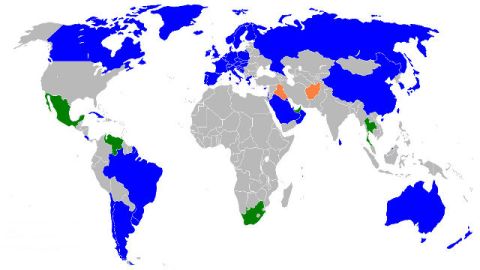To Roger Ebert, On Why Universal Health Coverage Saves Us All Money

Today Roger Ebert of the Chicago Sun-Times has posted a thoughtful blog about universal health coverage, inspired in part by the tragic events in Aurora, Colorado. I’ve been involved in the debate about universal health coverage since the days of the Clinton national health plan in 1994, most recently with this paper for the Council on Foreign Relations. Here’s what I wrote in response to Ebert’s blog:
Hi Roger,
It’s important to point out that “we” are already paying for “their” health care, and we’re doing it in a very inefficient way.
Everyone gets healthcare in the US – it’s just a question of how and when. For people without insurance, it tends to be 1) when they’re really in trouble and 2) in an emergency room that can’t turn them away.
There are two big problems with this situation. First, we’re completely losing out on all the benefits of preventive care. Preventive care costs much less than hospital care and helps to reduce expensive hospital visits. If people wait until they’re really sick to get care, then their care is going to cost much more. That’s why private insurers heavily subsidize preventive care.
Second, emergency room care is scarce and very costly. It should really only be for urgent cases, rather than serving as a free-of-charge adjunct to the regular healthcare system. When we force uninsured people to use emergency rooms – their only option – we waste valuable resources and incur unnecessary costs.
All of these extra costs have to be paid by someone, and that someone is us. Because hospitals can’t recoup any of their costs from the uninsured, they end up charging insured people more. As I said, “we” are *already* paying for “their” care.
Instead of paying for “their” care this way, we could do it by bringing “them” into insurance pools, either via taxes or cross-subsidies. This is Obamacare in a nutshell. By getting “them” into private insurance or Medicaid coverage, we have an opportunity to 1) take advantage of the benefits of preventive care and 2) treat people in appropriate clinical settings.
The cost of doing things this new way will be a lot smaller than what we’re doing now. Making the change will eventually *lower* our insurance premiums and our tax burden, because hospitals will no longer have to shift the high cost of free care onto paying patients with private insurance and Medicare.
It’s a question of efficiency. “We” are already paying for “their” care – let’s just do it the right way.
Best regards,
Dan





